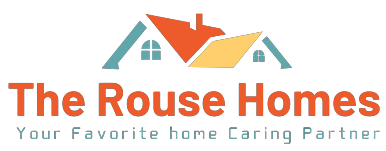Home loans come in four basic categories: conventional, FHA, VA, and USDA. Making the right decision among them might result in significant savings on your down payment, fees, and interest.
The different mortgage types you can get are just as crucial to research as the areas you wish to live in if you’re a prospective house buyer.
However, in this article, we shall discuss conventional home loans in greater detail.
What Are Conventional Loans?
Any house loan that isn’t insured or guaranteed by a government body gets to be known as a conventional loan. Many conventional loans adhere to minimum income and credit score requirements and lending restrictions imposed by the government.
Contrary to government-backed mortgages like FHA, conventional loans sometimes have lower costs but more stringent eligibility restrictions.
Some conventional loan purchasers cover it with an advance charge deducted from their closing fees, while others significantly increase their interest rate. In addition, you must accumulate 20% equity in your property if your mortgage needs Prime Monthly Income (PMI) to get approval for a home loan.
Different Types Of Conventional Loans
Given below are the five main categories of conventional loans that you must know—
Conforming Conventional Loans
Mortgages classified as conforming loans must adhere to Freddie Mac and Fannie Mae standards. The loans are approved and funded by conforming lenders, who sell them to investors later. After being securitized, the loans are sold to investors on public markets.
Conforming loans sometimes have lower interest rates than other types because of their liquidity and governmental controls.
Although Freddie Mac and Fannie Mae labor behind the scenes to ensure your loan is properly serviced, a mortgage’s lifespan really begins at the closing. Due to their low-interest rates and small down payments, conforming loans favor borrowers.
Non-Conforming Conventional Loans
Mortgages that don’t comply with regulations aren’t terrible loans because they’re dangerous or unduly complicated. Instead, financial institutions reject them because they are more difficult to sell and do not follow GSE criteria.
Banks will often demand a higher interest rate for a nonconforming loan because of this. As a result, it is fundamentally riskier for banks to write mortgages that Fannie Mae and Freddie Mac cannot purchase.
Selling these challenging loans to companies with expertise in the secondary market is necessary. What is sometimes referred to as a jumbo mortgage is the most prevalent nonconforming mortgage.
Fixed-Rate Conventional Loans
An interest rate on a “fixed-rate” mortgage won’t alter during your mortgage. However, with a “traditional” mortgage, the loan amount and financial status must meet predetermined standards.
For refinancing, 15- and 20-year fixed-rate mortgages are very popular. The interest rate on a fixed-rate mortgage won’t vary for the duration of your loan.
Less paperwork may be needed for conventional mortgages than for FHA or VA loans. With jumbo loans, you can finance a property with a bigger value than the conforming loan maximum.
Non-Qualified Mortgages
To be eligible for a house loan, mortgage lenders often have a list of conditions. These can include having a consistent source of income, a history of employment spanning at least two years, and excellent credit.
A qualifying mortgage (QM-loan) satisfies the requirements outlined by the Dodd-Frank Wall Street Reform Act and Consumer Protection Act. Conversely, a loan that doesn’t adhere to the requirements of a qualified mortgage is known as a non-qualified mortgage (Non-QM).
These loans are only available to applicants who meet specific income qualification requirements. The borrowers may be self-employed, have unusual sources of income, or have had trouble getting approved for a QM loan because of credit problems.
Portfolio Loans
Instead of selling to another firm, a lender will create a portfolio loan and maintain it as part of their investment assets. With portfolio loans, the lender can impose more lenient conditions on the mortgage, which are frequently to the borrower’s advantage.
Due to the lax eligibility conditions for these loans, they facilitate quicker and easier loan approval for prospective property purchasers. Prospective homebuyers who need money to purchase real estate may benefit from portfolio loans.
You should check portfolio loans because they don’t have to adhere to private mortgage insurance requirements, down payment minimums, or conforming loan restrictions. However, portfolio loans generally have greater origination costs and loan interest rates.
Plan Your Home Loan Today!
Paying private mortgage insurance can be avoided by making a 20% down payment on a house loan (PMI). However, a 3% down payment on a conventional loan can be acceptable.
A fixed-interest mortgage has an interest rate that remains the same for the duration of the loan. When your loan changes, your monthly payment with an adjustable-rate mortgage might change depending on interest rates.





